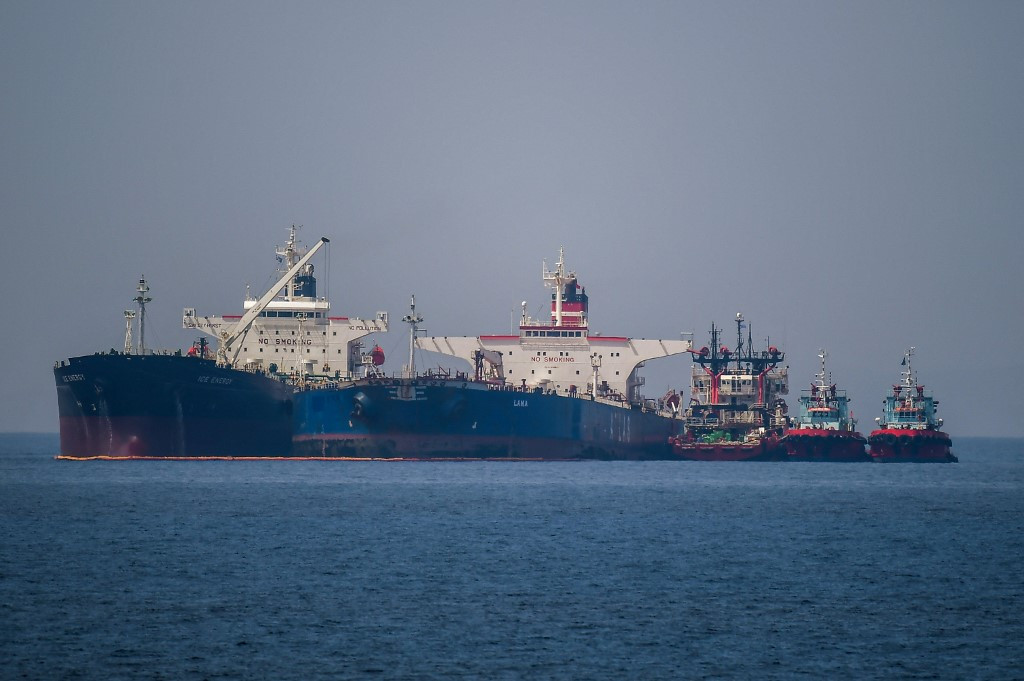Popular Reads
Top Results
Can't find what you're looking for?
View all search resultsPopular Reads
Top Results
Can't find what you're looking for?
View all search resultsPertamina in talks with Moscow on crude oil imports
State-owned oil-and-gas company Pertamina is in talks to buy crude oil from Russia while the G7 forum is trying to get other countries to join its push for a price cap on Russian oil.
Change text size
Gift Premium Articles
to Anyone
S
tate-owned oil-and-gas company Pertamina is in talks to buy crude oil from Russia while the Group of Seven (G7) forum is trying to get other countries to join its push for a price cap on Russian oil.
“Pertamina is in contact with Russia’s side, that’s all I can say,” Russian Ambassador to Indonesia Lyudmila Vorobyova told a news conference in Jakarta on Wednesday. “We are ready [to sell crude], and the conditions are negotiated between relevant agencies and companies. What will the result be? We’ll see.”
Indonesia is considering the purchase of crude oil from Russia, which currently sells the commodity below global market prices to several countries, as the government seeks to shield domestic consumers from high international energy costs.
The surge in oil prices this year is straining the state budget as the government has increased subsidy spending to keep domestic fuel prices low, while also striving to keep its fiscal consolidation plan on track.
Pertamina was quoted by media in April as saying that it was studying the estimated cost and amount of Russian crude to import.
When asked about progress in the talks with Moscow, Milla Susilo, senior communications manager of Pertamina’s refinery and petrochemical arm PT Kilang Pertamina Internasional, told The Jakarta Post on Wednesday: “We cannot disclose that information yet.”
Read also: Pertamina still ‘studying’ plan to import Russian oil
Russian oil prices have risen in anticipation of a European Union embargo, with the benchmark oil grade Urals trading at an US$18 to $25 per-barrel discount to international crude benchmark Brent, down from a $30 to $40 discount earlier this year, Reuters reported on Saturday.
Urals oil is still flowing to European refiners under term deals concluded prior to February. Though, from early December, EU companies will no longer be able to buy Russian seaborne crude, while the G7 moves ahead with its plan to put a price cap on Russian oil.
Read also: G7 calls on Indonesia to cap Russian oil prices
‘If you want a price cap, we will not sell’
Ambassador Vorobyova said Russia would not sell any oil to countries imposing a price cap.
“[A price cap] is unrealistic, and I think the Russian side has stated, if you want a price cap, we will not sell [oil] to you. [If some countries] don’t want to buy our oil, okay. It’s up to [them],” she said at the same event on Wednesday.
Top officials from the G7 countries agreed last Friday on a price-capping mechanism for Russian oil exports in an attempt to limit how much money Russia can earn from each barrel it sells on the global market while keeping Russian oil flowing to global markets that depend on those supplies.
EU Commissioner for Energy Kadri Simson said the EU, as a member of the G7 forum, agreed to the scheme so that countries buying Russian oil products “would not pay them those extra revenues”.
“So, our message to Indonesia, India and China, who are still willing to buy Russian products, is to propose an oil-price cap [for Russian oil],” she told reporters in Jakarta on Tuesday.
However, Finance Minister Sri Mulyani Indrawati said on July 15 that such a move would not solve the world’s energy problems.
“Imposing a cap definitely is not going to solve the problem, because it is about the quantity [of crude oil in the market], which is not adequate when compared to demand,” she said in an interview hosted by CNBC during the Group of 20 (G20) Finance Ministers and Central Bank Governors (FMCBG) meeting in Bali.
The energy subsidy budget in Southeast Asia’s largest economy tripled in 2022 from the originally earmarked amount to Rp 502.4 trillion (US$33.74 billion) because of the rise in global oil prices and the depreciation of the rupiah against the US dollar.
At the same time, the consumption of subsidized fuel is far exceeding initial estimates. Pertalite gasoline use is now projected to amount to 29 million kiloliters this year, up 26 percent from the previous estimate of 23 million kl.
Energy and Mineral Resources Minister Arifin Tasrif said on Aug. 26 that the government planned to provide the extra 6 million kl to “continue providing subsidized fuel oil for the people”.
The energy minister did not rule out buying oil from Moscow, “if it’s available”.
“The principle is that, if [cheaper] oil is available, [the government] will buy it, but the source is yet to be determined,” Arifin told reporters on Aug. 30.










